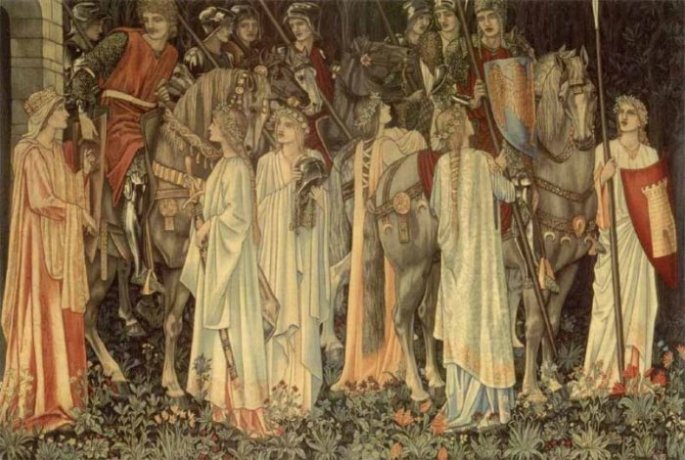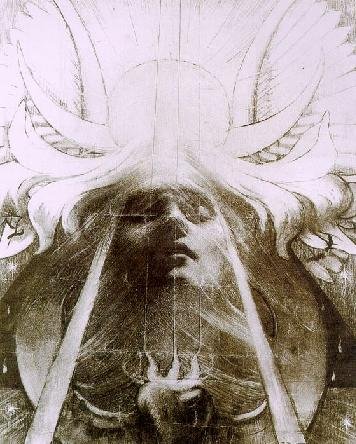Perceval's Tradition
The earliest tales of the Grail quest had Perceval as the hero.
The first tale of the Grail was written by Chretien de Troyes, called Le Conte du Graal ("The Story of the Grail") or Perceval le Gallois. Unfortunately, Chretien never finished his story due to his untimely death, and he stopped in mid-sentence. Several other writers continued where he left off, and these works were known as the Grail Continuations. I will retell Chretien's tale, and more briefly retell the other tales.
The next most important contributor to the Grail legend was Robert de Boron, a French poet who wrote three books, about 1200. Joseph d' Arimathea and Perceval were concerned with the Grail history and the Grail quest. The first book (Joseph d' Arimathea) was the only book to survive intact, whereas we have only fragments of the second book, called Merlin. The last book (Perceval) is lost. I have retold the complete story of Joseph of Arimathea under the title – the Origin of the Holy Grail. There is a second version about Joseph that was written in prose, called Estoire de Saint Graal, which is part of the Vulgate romances, but I have ignored this work for the moment.
Although the last book of Boron (Perceval) is lost, most scholars believed that the Didot Perceval may have been a prose adaptation of Boron's Perceval.
Another important author of the Grail story was the German writer named Wolfram von Eschenbach. Wolfram wrote a large volume called Parzival.
By the mid-twelfth century, a new character was introduced into the Grail legend. The Vulgate Cycle (or prose Lancelot) was comprised of several works. The second work was called Queste del Saint Graal ("Quest of the Holy Grail"), and the new hero of the quest was named Galahad, the son of Lancelot (See Galahad's Story for the Vulgate version of the quest).
Genealogy
House of Perceval (Chretien de Troyes' version)
Related Sites
Grail Legend (Background)
Origin of the Grail (Boron's version)
By Jimmy Joe









